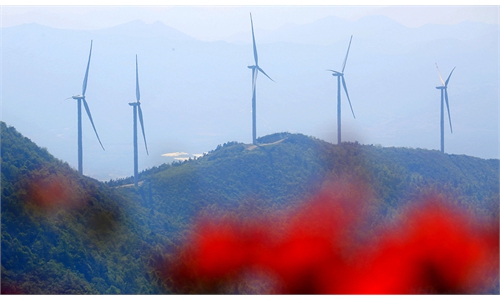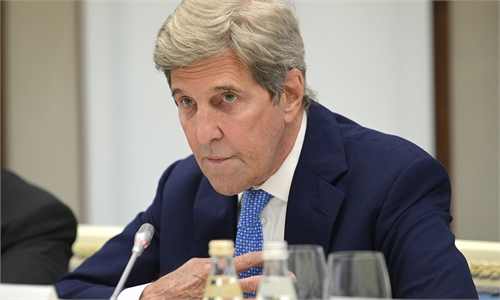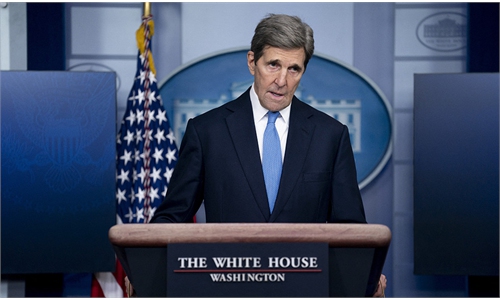COMMENTS / EXPERT ASSESSMENT
US, China could cooperate on climate earnestly, not playing politics
US, China should cooperate on climate earnestly

Illustration: Tang Tengfei/Global Times
Following US government's intentional assault on industries located in Northwest China's Xinjiang Uygur Autonomous Region, US customs have, reportedly, begun to seize imported Chinese solar panels made with materials produced in Xinjiang.
In June this year, the US Customs and Border Protection began to seize imported solar products containing key materials made by Chinese company Hoshine Silicon Industry Co. Some US solar manufacturers have filed a petition with the US federal government on August 16, accusing Chinese solar companies of "illegally evading US tariffs," according to the Washington Post.
It is not a new trick for the US government to use hypocritical excuses, such as "forced labor" to promote agendas serving its own political and strategic interests. Behind the fabricated "forced labor" lie about Xinjiang, the real intention of the US is to contain the development of Chinese new energy industry.
While solar panels are becoming a hot issue amid China-US tensions, the two nations' newly scheduled high level talks on climate has drawn global attention. Though it is currently an important area that the two sides may reach some common grounds, the US government appears lack of sincerity when it comes to practical cooperation.
According to China's Ministry of Ecology and Environment, the US Special Presidential Envoy for Climate John Kerry is paying a visit to China starting Tuesday. However, before the trip was announced, the US media has already started to ferment a hostile atmosphere. The envoy "will press Chinese leaders to declare a moratorium on financing international coal-fired projects," the Wall Street Journal said.
As irresponsible as it always has been, what the US side aspires to do is to disrupt China's international cooperation projects, especially those infrastructure projects under the Belt and Road Initiative (BRI). Related countries' development was clearly not included in Washington's priority list.
Infrastructure development needs to take into account the real-world situation for the developing countries, instead of simply urging them to initiate new energy exploration which may go beyond their capability. Despite this, China has vowed to build a closer partnership for green development and called for strengthening cooperation on green infrastructure, green energy and green finance.
In early July, Industrial and Commercial Bank of China, China's largest commercial bank, has reportedly abandoned a plan to finance a coal fire plant in Zimbabwe due to environmental concerns, contributing to the green agenda of the BRI.
It is apparent that the US government, without a clear emission reduction plan itself, is reverting to its "blame China" playbook. China, by contrast, has rolled out a clear roadmap to achieve carbon emissions peak before 2030, and carbon neutrality before 2060.
As the world's largest developing country, China has taken responsibility to tackle the climate change through intensified efforts at home and abroad with enhanced international cooperation.
China launched the world's largest carbon trading market in July, marking a significant step to help the country reduce carbon footprint and meet emissions target. Besides its efforts promoting green BRI, China has now formed a green partnership with the EU.
China's carbon emissions per capita is only half that of the US. It is clear which country has taken earnest efforts to reducing greenhouse gas emissions.
In the end, it is a welcome move to see the US to take a cooperative approach and make practical steps to help resolve the global climate crisis. However, this does not entitle it to dictate the terms of engagement with China.
The article was compiled based on an interview with Wang Yiwei, director of the Institute of International Affairs at Renmin University of China in Beijing. bizopinion@globaltimes.com.cn



